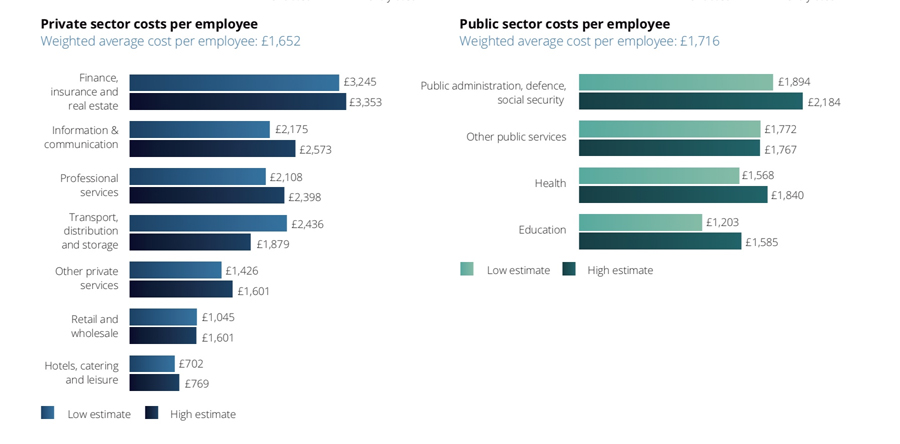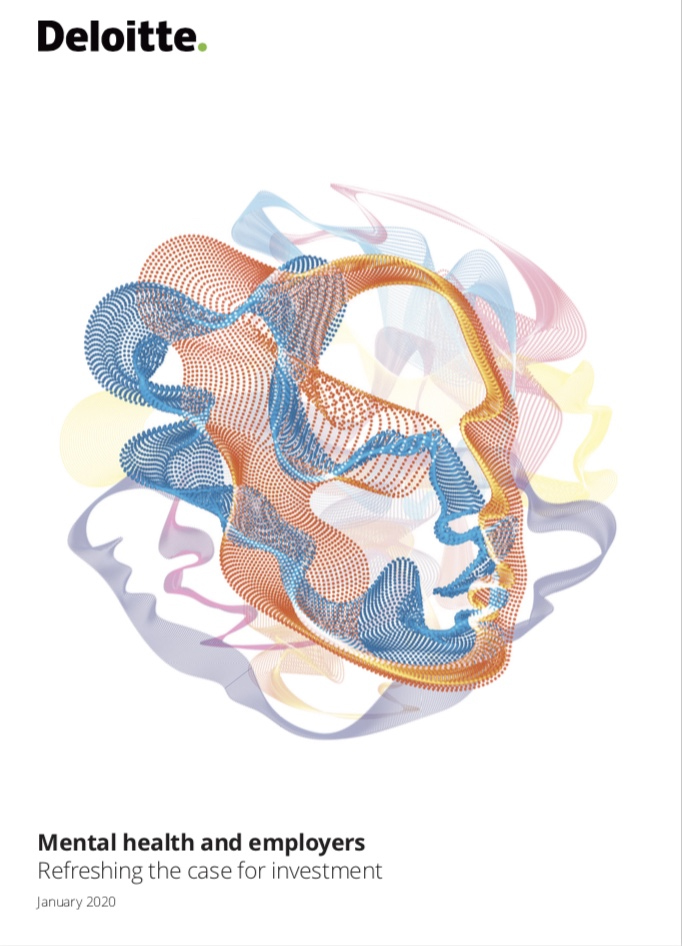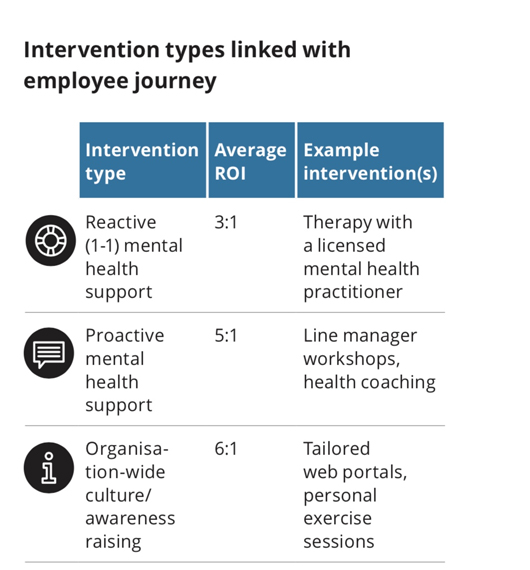Deloitte has revealed a positive business case for employers to invest in staff wellbeing. According to its latest report, Mental health and employers: Refreshing the case for investment, employers can expect to get an average return of £5 for every £1 spent (5:1) – up from the average 4:1 return, in 2017.
It’s certainly an investment that employers would be wise to consider, given the rising cost of poor mental health in the UK workplace – now costing up to £45 billion. This is made up of around £7bn in absence costs, between £27bn and £29bn in presenteeism costs, and around £9bn in turnover costs, confirms Deloitte. That represents an increase of about £6bn (16%), compared to its 2017 findings.
The rising costs have been driven primarily by a rise in presenteeism; in other words, ‘coming to work despite poor health and underperforming’. The indirect costs of poor mental health to employers are also high, and include an adverse impact on creativity, innovation and colleagues.
DETERIORATING MENTAL HEALTH
In fact, mental health in the UK workplace is deteriorating, and it’s a huge concern for 59% of UK CEOs (as reported).
Recent data from the Chartered Institute of Personnel and Development (CIPD) indicates a significant increase in the number of reported instances of mental ill health over the past year, in both large (250+ employees) and small (less than 250 employees) organisations. Mental health appears to be deteriorating more in larger organisations, with about 7 in 10 employers experiencing an increase in reported mental health conditions over the past year.
The average ‘per employee’ cost of mental health in the public sector is slightly higher than the private sector (£1,716 compared to £1,652), reveals the Deloitte report. Costs per employee across England, Wales and Scotland range from £1,475 to £2,277, with the highest ‘per employee’ costs in London.

The largest contributor to costs (across both sectors) is presenteeism, accounting for two-thirds of the total cost. The cost of leaveism, ‘the technology‐enabled, always‐on workplace culture’ is also rising, the report found. Both leaveism and presenteeism are closely linked to employee burnout, which can result in employers losing highly engaged talent, says Deloitte.
WORKPLACE SUPPORT
Recent research by Business in the Community (BITC) has shown that work-related mental health problems are caused largely by increased pressure and workload, and lack of support. Negative work relationships, lack of trust in managers and the poor handling of organisational changes are other prominent factors. Rising levels of personal debt have also led to an increase in mental stress.
Young professionals are the most vulnerable, according to Deloiite’s findings. They are twice as likely to suffer from depression and more susceptible to leaveism, burnout and financial worries, than older employees. Young people therefore need more support from employers than they are currently receiving, suggests Deloitte.
That said, there have been positive changes affecting workplace mental health over the last two years. “These include a shift, among large employers in particular, towards talking more openly about mental health at work and providing greater support to staff,” according to Rebecca George OBE, Vice Chair and UK Public Sector Leader, Deloitte.
However, despite this progress, the reality for many employees is that they still don’t feel able to talk about their mental health. BITC’s 2019 Mental Health at Work report found that only 49% of employees felt comfortable talking to their line manager about their mental health, and 39% of employees said that work had affected their mental health over the past 12 months.

RECOMMENDATIONS
Deloitte’s findings suggest that employers still need to do more to support their staff’s mental health and wellbeing. More investment is particularly needed around tackling stigma and increasing awareness of mental health issues, and providing adequate training for employees.
It recommends that training for younger staff is ‘appropriate and accessible’. Firms should also consider whether increasing financial literacy and providing financial support is appropriate for the organisation. Deloitte stresses the need for employers to understand the drivers of presenteeism and leaveism in the organisation, and take action to reduce them.
The return on investment that an organisation can expect to make depends on the type of support they put in place for their staff. For example, companies can expect a 3:1 return on a reactive approach to mental health, compared to an average return of 6:1 for a company-wide culture/awareness raising approach, as the chart below demonstrates.

Click here for a copy of the report.







































